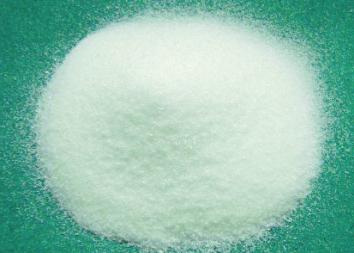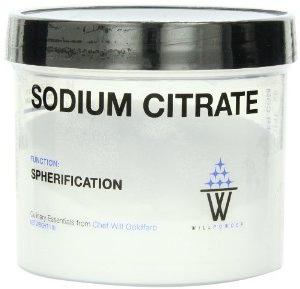Instructions for the use of "sodium citrate". Possible adverse reactions. List of contraindications to the appointment
G04BC (Nephrourolithiasis drugs)
A06AG11 (Lauryl sulfate (including in combination with other drugs))
A07CA (Oral Regidratants)
V07AC (Blood Transfusion Aids)
A01AB03 (Chlorhexidine)
Analogues of the preparation SODIUM CITRATE by ATH codes:
Before using SODIUM CITRAT, you should consult your doctor. This instruction manual is intended solely for information. For more information, please refer to the manufacturer's annotations.
SODIUM CITRATE: Clinical and pharmacological groups
19.007 (Preparation for preserving donor blood)
25.003 (Antiseptic with hemostatic action for local use in dentistry)
28.014 (The drug used in urolithiasis)
11.048 (Laxative drug that helps soften fecal masses)
16.059 (Preparation for rehydration and detoxification for enteral use)
SODIUM CITRATE: Pharmacological action
Sodium citrate is metabolized to bicarbonate, which promotes regression of dysuria, observed in cystitis, causes alkalinization of the urine and a slight increase in diuresis.
SODIUM CITRATE: Dosage
Is ingested 3 times / day for 48 hours. The dose depends on the dosage form used.
SODIUM CITRATE: Pregnancy and lactation
With pregnancy and lactation should be used with extreme caution.
SODIUM CITRATE: Side Effects
In rare cases: skin rash, abdominal pain.
SODIUM CITRATE: Indications
Symptomatic treatment of cystitis in women (in cases of abacteriuria).
SODIUM CITRATE: Contraindications
Hypersensitivity to sodium citrate.
SODIUM CITRATE: Special instructions
With extreme caution used in patients with diseases of the heart, kidney, hypertension, diabetes, on the background of a diet low in salt.
In men and children, cystitis often has a bacterial nature, so the use of sodium citrate is not recommended. Do not repeat the treatment frequently. If at the end of the course of treatment the symptoms of cystitis remain, it is necessary to verify the diagnosis.
(Visited 14 times, 1 visits today)
"Sodium citrate (Sodium citrate)" used in the treatment and / or prevention of the following diseases (nosological classification - ICD-10):
Gross formula: C6-H5-Na3-O7
CAS Code: 68-04-2
Description
Characteristic: Colorless crystals or white crystalline powder; odorless, salty taste.
pharmachologic effect
Pharmacology: Pharmacological action - anticoagulant, normalizing KHS, alkalizing urine. Binds Ca ^ (IV plasma coagulation factor) and inhibits hemocoagulation (in vitro). Increases the content of Na ^ in the body, increases the alkaline blood reserves. Changes the reaction of urine from sour to alkaline, contributes to the disappearance of dysuria symptoms.
Indications for use
Application: Stabilization of blood. Symptomatic treatment of cystitis.
Contraindications
Contraindications: Hypersensitivity.
Restrictions on the use of: Diseases of the heart, kidney, hypertension, diabetes, a diet low in salt, pregnancy, breast-feeding.
Side effects
Side effects: Decreased appetite, nausea, vomiting, abdominal pain, increased blood pressure.
Dosage and method of use
Dosage and administration: To stabilize the blood - sodium citrate solution is pre-added to blood collection containers.
Inside - the contents of one bag (pre-dissolved in 1 cup of chilled boiled water) 3 times a day for 2 days.
Precautions: Do not frequently repeat the course of treatment. If at the end of the course symptoms of cystitis remain, it is necessary to verify the diagnosis.
In men and children, cystitis often has a bacterial nature, so the appointment of the drug in these patients is not recommended.
A tool called "Sodium Citrate" is a specially designed to normalize the acid-base state and alkalization of urine. In addition, this substance significantly increases the content in the body of Na. In addition, the “Sodium Citrate” agent enhances the so-called “alkaline reserves” of plasma and changes the urine to alkaline reaction, while at the same time ensuring the disappearance of dysuria symptoms. At the same time, the binding of Ca and inhibition of hemocoagulation is the basis of the pharmacological action of this drug. This drug belongs to the group of anticoagulants and regulators of water and electrolyte balance.
The main characteristics of the drug
This tool is produced (as well as its type - the preparation "Sodium Citrate Dihydrate") in the form of a white crystalline powder or odorless, colorless, salty tasteless crystals. This substance has the ability to metabolize to bicarbonate, which, in turn, promotes dysuria regression and provokes alkalinization of urine.

List of main indications for use
Experts recommend using Sodium Citrate as an effective symptomatic remedy for the treatment of cystitis, a disease accompanied by inflammation of the bladder. This substance is also actively used during the plasma preservation procedure. In addition, Sodium Citrate for injection is used in the form of 4-5% solution as an effective anticoagulant drug in case of indirect blood transfusion.
List of contraindications to the appointment
Experts categorically do not recommend using this anticoagulant substance to people who suffer from increased individual sensitivity to it. In addition, it is not necessary to prescribe a remedy called "Sodium Citrate" if the patient has diabetes or any serious heart disease. Also in the list of direct contraindications to use include arterial hypertension and the period of carrying a child.
Young mothers who feed their newborn baby with breast milk should likewise refrain from using this regulator of water and electrolyte balance. Among other things, it is necessary to use this substance with great care for people with kidney disease. And finally, you can not take an anticoagulant "Sodium Citrate" while adhering to a diet characterized by low salt.

Possible adverse reactions
As for the most common adverse reactions that may occur as a result of using this anticoagulant substance, first of all, experts note a rather high risk of loss of appetite and nausea. In addition, in some cases, abdominal pain and vomiting may occur. There is also a small risk of a significant increase in blood pressure due to the use of this tool.
